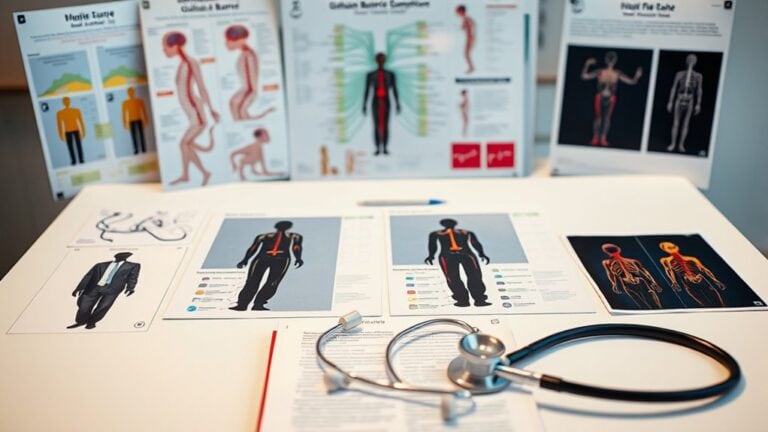Human bites could seem minor, but they can cause serious problems should they be ignored. Broken skin, pain, swelling, or redness around the bite should raise concern since infections spread rapidly. Whether it’s a playground scuffle or an accidental nip, deeper punctures can damage nerves and tendons. Some people hesitate to get help, but delaying only worsens risks like fever or pus-filled wounds. Understanding when to act fast could be the difference between quick healing and long-term trouble.
Common Causes of Human Bites
Human bites often occur in high-energy situations where emotions run hot. Physical altercations, particularly among children expressing anger, are a leading cause.
Males aged 10–34 are especially prone due to fights, where clenched fists can strike teeth, creating deep wounds. Playful roughhousing might also escalate unexpectedly, resulting in accidental bites.
Another common scenario involves self-defense, where a person bites to escape harm. Unlike animal bites, human mouths carry bacteria, increasing infection risk if the wound isn’t treated. Bites near joints, like knuckles, are particularly dangerous—teeth can puncture tissue, introducing harmful bacteria.
Even seemingly minor bites require medical attention to prevent complications. Understanding these causes helps recognize when immediate care is necessary. Awareness reduces risks, ensuring prompt action for better recovery.
Recognizing Symptoms of a Human Bite
Spotting the signs of a human bite prompt can prevent serious complications, especially since these wounds often hide deeper damage. Unlike animal bites, human bites might appear small but can cause significant harm beneath the skin.
Common symptoms include pain, bleeding, or numbness around the wound, along with bruising or crushing injuries. Puncture wounds may seem clean but can lead to tendon or joint damage if untreated.
Should the wound have become infected, signs like fever, chills, or worsening swelling may appear. Loss of sensation or difficulty moving a finger could indicate nerve or tendon issues. To prevent complications, seek medical advice promptly, even for minor bites. Timely attention guarantees proper care and reduces the risk of long-term problems.
Immediate First Aid for Human Bites
The initial step in treating a human bite is to clean the wound thoroughly with soap and water to lower infection risks.
When bleeding occurs, apply gentle pressure with a clean cloth to control it before covering the area with a sterile dressing.
Proper immediate care can prevent complications and speed up healing.
Clean the Wound
Since human bites can introduce bacteria deep into the skin, cleaning the wound right away is crucial to prevent infection. The risk of complications increases when the wound is not properly treated, as human saliva can cause serious infections.
Use soap and water: Gently wash the area with warm, soapy water for at least five minutes to remove bacteria and debris.
Encourage slight bleeding: Lightly pressing around the wound helps flush out contaminants, but avoid this if the wound is bleeding heavily.
Apply antibiotic ointment: After cleaning, cover the area with a thin layer of ointment and a clean bandage to protect it.
If redness, swelling, or pain worsens, see a doctor promptly. Proper cleaning reduces the chance of complications, but medical evaluation is often necessary.
Control Bleeding
Heavy bleeding from a human bite needs quick action to prevent blood loss and reduce the risk of complications. Whether handling animal and human bites, the initial step is to stop the wound from bleeding by applying firm pressure with a clean cloth or sterile gauze. Holding it steadily for 5–10 minutes helps slow blood flow. Should bleeding continue, apply additional layers without removing the first cloth. Elevating the injured area above the heart can also help reduce bleeding. Avoid probing or removing debris, as this could worsen the wound. If the bleeding persists even after applying pressure, seek immediate help at an emergency room.
| Action | Purpose | Note |
|---|---|---|
| Apply pressure | Stop bleeding | Use a clean cloth |
| Elevate wound | Slow blood flow | Raise above heart |
| Avoid removing debris | Prevent further harm | Leave large objects |
| Monitor bleeding | Check progress | Seek help if unresolved |
| Don’t use tourniquets | Prevent tissue damage | Only if absolutely necessary |
Keeping calm and acting swiftly minimizes risks.
Cover With Dressing
After stopping the bleeding, covering the wound properly is the next critical step in preventing infection and promoting healing. A clean dressing shields the bite that breaks the skin from dirt and bacteria, especially if the wound is on a body part prone to contamination, like hands or fingers.
Choose the right dressing: A sterile, non-stick bandage prevents fibers from sticking to broken skin.
Secure it well: Use medical tape or a wrap to keep the dressing in place without cutting off circulation.
Change as needed: Replace the dressing if it gets wet, dirty, or shows signs of infection.
In the event that the bite has broken deep layers of skin or bleeds heavily, seek medical help immediately to avoid complications.
When to Seek Professional Medical Care
Whenever should a human bite prompt a visit to a doctor? Human bite wounds require medical attention within 24 hours if the skin is broken, as they carry a high risk of infection. Wounds will usually heal better when treated quickly, especially if antibiotics or a tetanus shot are needed. Immediate care is indispensable for bites on hands, feet, face, or joints due to higher complication risks.
| Situation | Action |
|---|---|
| Broken skin | Seek medical attention within 24 hrs |
| Bite on hand, foot, face, or joint | Visit ER or urgent care immediately |
| Signs of infection (redness, fever) | See a doctor promptly |
| Biter has HIV/hepatitis | Get tested and treated quickly |
Increasing pain, swelling, or fever signals infection, requiring prompt care. Neglecting symptoms may worsen the injury.
Potential Complications From Human Bites
Human bites can appear trivial, but they can result in severe issues when disregarded. The human mouth harbors bacteria that cause severe infections, making immediate care essential. Complications often arise due to the high risk for infection, especially in deeper wounds or bites near joints.
Infections: Cellulitis, osteomyelitis, or even meningitis can develop if left untreated. The infection is thought to spread quickly in certain scenarios.
Disease transmission: Bites might transmit hepatitis B, HIV, or tetanus, requiring urgent attention.
Chronic damage: Without treatment, bites can lead to permanent tissue damage. A doctor could prescribe antibiotics, or surgery may be necessary for severe cases.
Older adults or those with weakened immune systems face higher risks. Timely intervention prevents long-term harm.
Treatment Options for Human Bites
Bites that break the skin demand attention right away, even though they seem minor to commence. If one person is bitten by a person, the wound should be washed with soap and water to reduce infection risk.
A gentle bite may only need antibiotic ointment and a bandage, but deeper injuries require medical care. Whenever the bite is deep, stitches, a tetanus shot, or oral antibiotics could be necessary. If the wound comes into contact with saliva or shows signs of severe damage, surgery might be needed to repair tendons or bones.
Prevent Human bite complications by seeking help promptly, especially for high-risk wounds. Rapid treatment lowers the chance of serious infections and promotes faster healing.
Risk Factors for Severe Infections
People with weak immune systems, like those undergoing chemotherapy or residing with diabetes, face a higher risk of severe infections from human bites.
Deep wounds that penetrate beyond the skin also increase the likelihood of complications due to bacteria entering tissues. Proper care is vital to prevent infections in these cases.
Weak Immune System
A weakened immune system can turn even a minor human bite into a serious health threat. When the body’s defenses are compromised, bacteria from a bite can quickly cause an infection, and the wound becomes harder to heal. Those with conditions like HIV/AIDS, diabetes, or those taking immunosuppressant medications are at high risk. Blood tests might be needed to monitor infection levels, as symptoms can escalate rapidly.
Chronic illnesses: Diabetes or autoimmune diseases slow healing, increasing infection risks.
Medications: Drugs like steroids or chemotherapy weaken the immune system’s response.
Age extremes: Older adults and young children have naturally weaker defenses, making them more vulnerable.
Early medical attention is vital to prevent complications, especially for those with these risk factors.
Deep Wound Severity
As skin is broken by a human bite, especially in high-risk areas like the hands or face, the damage can go deeper than it initially appears. Deep wounds from punches to the mouth or bites that break the skin carry a higher infection risk, particularly in one-third of all hand injuries that involve human bites.
This is common among young children, who possibly bite during play but also in altercations involving adults. Unlike animal bites, human mouths contain bacteria that can swiftly lead to severe infections if left untreated. If a wound appears profound, swollen, or red, it’s critical to take medical action instantly.
Tendon or nerve damage might require surgery, especially when bites occur over joints. Prompt treatment prevents complications like cellulitis or bone infections.
Preventive Measures to Avoid Human Bites
Preventing human bites starts with comprehension of common triggers and taking simple steps to reduce risks. Most incidents occur during conflicts, play, or while assisting someone in distress. Awareness and proactive measures can greatly lower the chances of injury.
Key prevention tips include:
- Teaching children not to bite and redirecting aggressive behavior with positive reinforcement.
- Avoiding close contact with agitated individuals or placing hands near mouths, especially during seizures.
- Keeping wounds clean—if bitten, wash the wound immediately to reduce the chance of infection, and seek treatment to prevent complications like hepatitis B or tetanus (a tetanus shot might be needed).
Small precautions, like staying calm in tense situations, can usually be left open to interpretation but often make the biggest difference.





